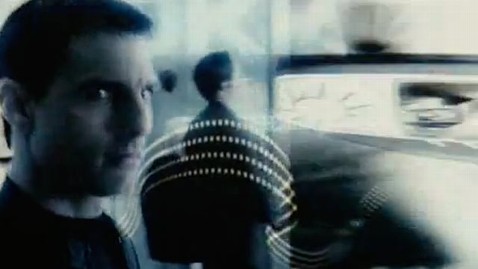Like 'Minority Report:' Billboards Recognize Faces

Tom Cruise is shown in a scene from the movie "Minority Report."
In the futuristic movie “Minority Report” from 2002, Tom Cruise runs through a mall as the advertisements around him change to tailor exactly to his tastes, encouraging him to stop for his favorite beer as he runs from the Big Brother-like voice that knows everything about him.
Today, Immersive Labs announced that the future is, in fact, now. The start-up tech company will roll out its first camera-enhanced “smart signs” this fall, equipping billboards and retail signage with the ability to tailor advertisements to the person looking at them at any given moment.
The company will install tiny cameras into already-existing digital signs in busy places, including airports, malls, and retail stores, and will be able to quickly compute what type of consumer is looking back: male or female, young or old, a sports fan or a pet owner.
The makers of the new technology maintain that the artificial intelligence it uses is not as invasive as the eerily similar advertising featured in “Minority Report.”
Jason Sosa, founder and CEO of Immersive Labs, said the camera won’t record anyone’s face or preferences, it will merely identify a viewer as fitting into certain consumer categories.”
“The system will be looking at a face to determine certain characteristics to apply a numerical value to,” Sosa said. “So all we’re looking for is, ‘Is there a face present? Is it male or female? What age is it?’ No images are saved or recorded or transmitted.”
The formula will take in other factors, including location, time of day, and even Tweets that mention the area, to choose which ad in a particular inventory it will show on the screen at that time, he said.
“If a basketball game is letting out at Madison Square Garden, and we have a sign there with both Nike and Office Max ads in the inventory, we can choose to use Nike because it makes more sense. If a lot of people are tweeting about taking their dog for a walk in a particular area, maybe we’ll put a Petco ad in that neighborhood. ”
The company plans to roll out the first AI-enhanced “smart signs” in Los Angeles and New York this fall, Sosa said.